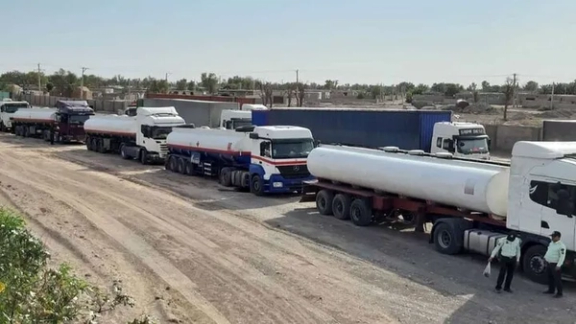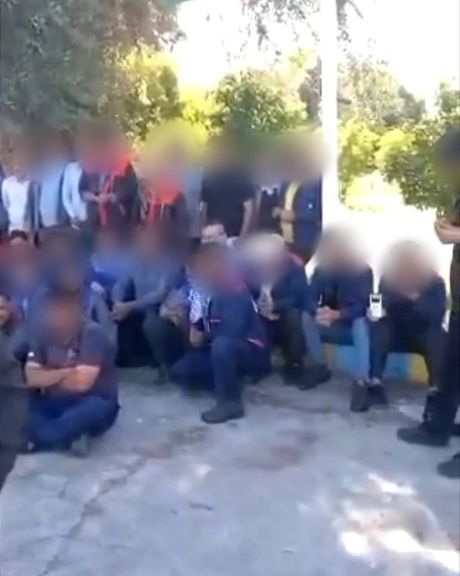Truckers Join Iran's Expanding Labor Strikes

Amid spreading strikes by tens of thousands of workers across Iran, truck owners and drivers have announced plans to hold a nationwide open-ended work stoppage.

Amid spreading strikes by tens of thousands of workers across Iran, truck owners and drivers have announced plans to hold a nationwide open-ended work stoppage.
The labor force at Pars Paper company in Hafttapeh, Khuzestan Province, and the railway maintenance workers in Kerman province were the latest to join the countrywide industrial action on Thursday, when truck drivers said they will stageastrike beginning May 22.
The Union of Truck-Owners and Truck Drivers issued a statement on Thursday, saying their complaints and short-term strikes have not resulted in any change in their situation therefore they plan a long and nationwide action.
Referring to rising prices and rampant inflation, they demanded fares on par with the increasing prices for fuel and spare parts. Since their previous nationwide strike that took place in over 160 cities about five years ago, their demands have not been met and their lives have become harder.
Their demands include better transport fares based on the weight of the cargo per kilometer, lower prices for spare parts, lower fuel prices through subsidies, removing customs tariffs and road tolls, as well as welfare and health facilities at terminals.
"We have said many times that our patience has a limit and such cruelty and oppression that is imposed on this hardworking group can no longer be tolerated,” read their statement, adding that “the government should take this warning seriously.”
People on social media describe the strike by the truckers as a significant blow to the Islamic Republic since it has the potential to cripple the economy.

The strike would be so costly for the regime that it is expected to lure them back into work by giving the extra fuel subsidies.
The statement came as workers in more than 100 oil, gas, petrochemical and other plants across the country have been staging strikes since April 22, protesting poor working conditions, low wages and rising cost of living. Almost all the striking workers in oil, gas, steel, petrochemicals and other industries are not officially hired and are working on temporary contracts, risking their only means of livelihood by joining the strikes.
Authorities claim that the strikes are being organized by anti-regime groups, a charge the Islamic Republic often makes to de-legitimize the demands of the workers who earn less than $200 a month. An official at South Pars gas field on the Persian Gulf stated last week that 4,000 protesting workers will be replaced by new ones.
Earlier in the week, the Coordination Council of Iranian Teachers' Trade Associations also announced nationwide demonstrations, calling on teachers and educators to protest outside Education Ministry branches across the country and outside the parliament in Tehran on May 9.
The council stressed the necessity of ending the "dominance of the ruling totalitarian ideology" in Iranian schools, claiming the current incompetent managers of the educational system should be replaced by those educated under more modern, secular pedagogy.
After weeks of relative calm with sporadic bouts of unrest on streets, it seems that nighttime protests are gaining a new momentum. There are also calls by grassroot groups in a couple of neighborhoods in Tehran to hold rallies on Saturday.